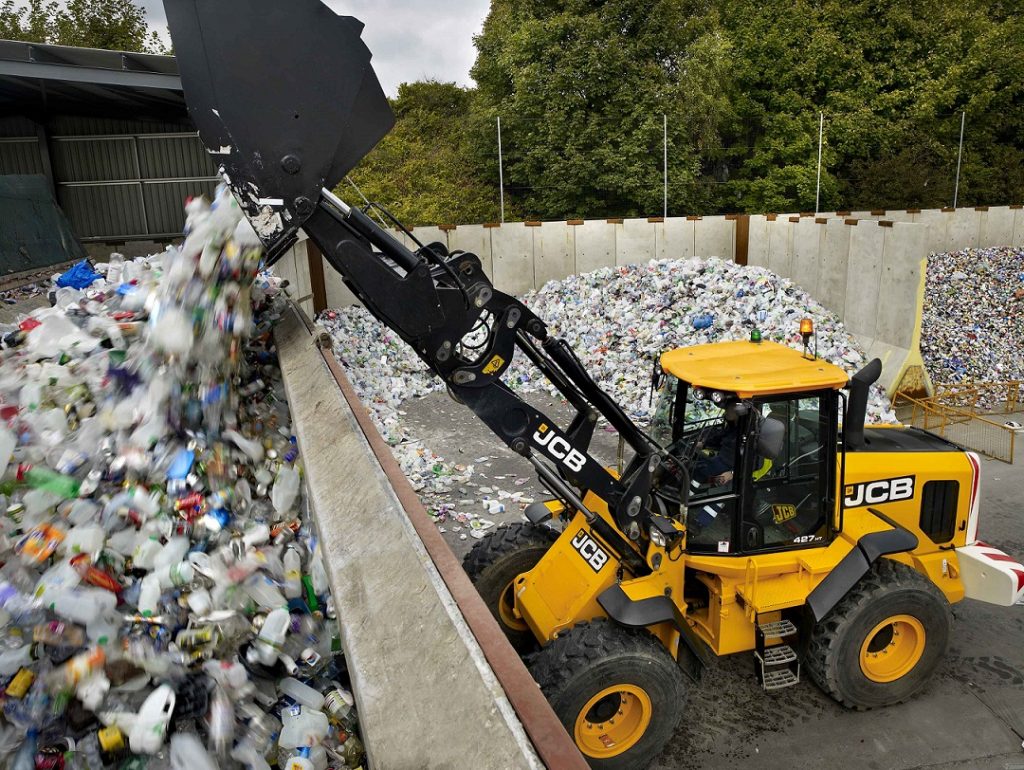CHOOSING THE RIGHT WHEEL LOADER FOR THE JOB

The sheer size and capacity of wheel loaders make them an essential asset for councils and waste management facilities, according to Deon Cope, JCB Construction Equipment Australia (CEA) National Product Manager for Wheel Loaders.
Deon says there are a number of considerations to keep in mind when reviewing a tender or choosing a wheel loader from a dealer, including understanding the task at hand and looking at the big picture when it comes to price.
1. Do the groundwork
First things first, understand the job and everything around it.
“The right machine will depend on the task it needs to do,” Deon says.
“Also think about the diversity of work — if it will be constantly switching between tasks, you’ll want a tool carrier that makes light work of changing attachments. If it uses a bucket all the time, you may want to consider a Z-bar for optimum breakout force.”
Second, Deon says it’s important to consider how often the wheel loader will need to be transported.
“If the wheel loader is being moved by road, transport width of the machine and any attachments need to be considered — choosing an over-width option can create headaches if it’s frequently being used between sites. If you’re doing significant road travel or if the machine is working in different sections of a large site, the powershift transmission may be a better option.”
2. Get a solid support team
“While many councils and waste facilities have their own workshops, an appropriate level of support from your equipment partner is important,” he says. “Look for a supplier who will appoint an experienced person as your key contact.”
Deon highlights that the supplier should be able to provide parts quickly if the dealer does not have them on hand or regularly in stock.
3. Opt for durability
“Choose machines that are designed to protect hydraulic hoses and other components, and consider other protective options like under guards and light shields. This is especially important if your equipment is used for site preparation work where it will have to move through dense vegetation and constricted spaces.”
Another consideration is matching the machines with the right tyres for the job.
“This might mean choosing a deeper tread, a wider tyre or using a particular type of tyre fill,” he says.
4. Match your bucket
Working out a daily production figure and the weight of materials will help when choosing the right bucket for the job, says Deon.
“Determine daily production targets and material density. If you work with different materials, spec the bucket based on the heaviest material it will handle.”
5. Invest in the right attachments
Amp up the versatility of the loader by investing in some loader-specific attachments — from all-purpose material handling buckets to heavy rock buckets, pallet forks and grapples, he says.
“To make the most of your attachments and maximise productivity, ensure all machines you buy have an automatic quick hitch,” he says.
“Note that semi-automatic quick hitches are being phased out in NSW under a ruling from WorkCover NSW with other states likely to follow.”
6. Focus on breakout force
Breakout force has a direct impact on productivity, as productivity increases with faster bucket fill rates, according to Deon.
“Wheel loader productivity is frequently measured in machine power (kW or Hp) and lift capacity,” Deon says. “Optimum hydraulic performance improves cycle times for increased productivity.”
7. Look at the big picture
The purchase price is just the tip of the iceberg. To get real value you need to consider operational costs and resale value as well.
“Choosing a fuel-efficient machine, ideally one that can operate a full shift on one tank can mean big savings. You should also look for the latest in emissions management technology, to keep emissions down and meet community expectations,” he says.
“And don’t forget about resale value. A bargain buy is not a bargain if you can’t sell it when the time comes. Choosing a reputable brand is the surest way to secure resale value.”
For more information on wheel loader please contact your local dealer on 1300 522 232.
